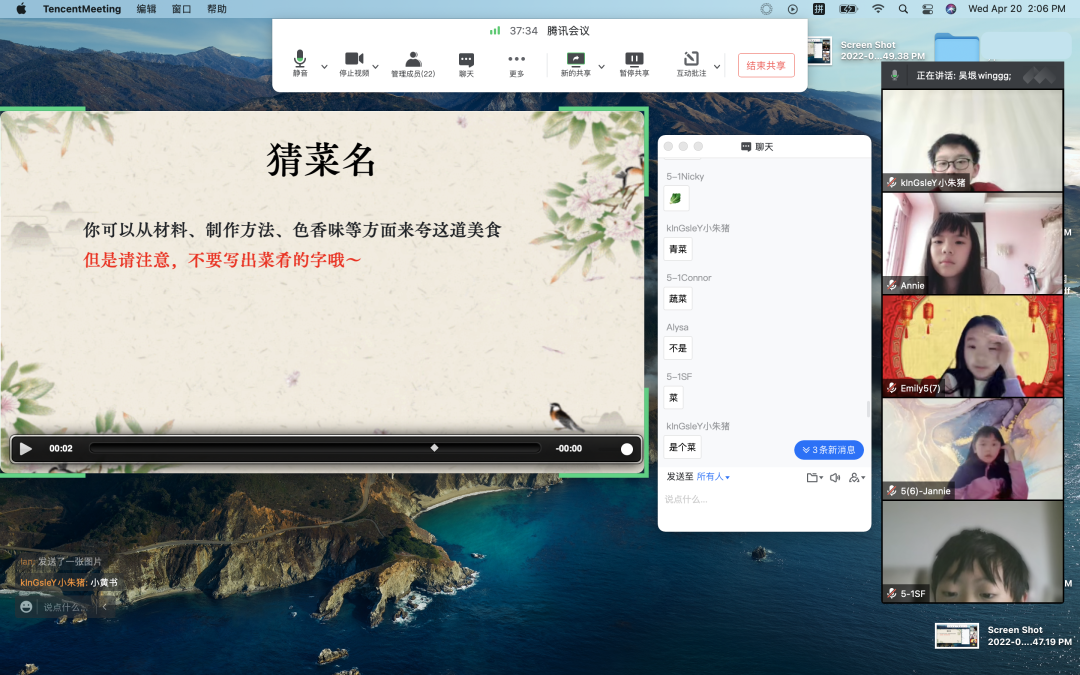-
ABOUT US
-
ACADEMICS
Curriculum Program
Departments
- English
- High School Chinese
- Primary and Junior School Chinese.
- High School Mathematics
- Middle School Mathematics
- Primary School Mathematics
- Music and Fine Arts
- Physical Education
- Physics
- Chemistry
- History and Geography
- Physical Science and Optional courses Department
- Middle School Biology
- High School Biology
- Social Sciences
- Computer Science
- Courses in Primary School
Achievements and Matriculations
College Counseling
Science & Technology Innovation Contest
Subject Competition
-
ARTS
-
ATHLETICS
-
AT SHSID
SHSID ∣ TIMES
PTSA
Club Exhibition
- 龙吟社
- Live 2 Drama
- Choir
- Hip-pop Dance Club
- The Primary School Dance Troupe
- Symposiums Club
- Biology Workshop
- You Shan
- VEX Robotic
- Peking Opera Club
- Baseball Club
- Model United Nations
- The World Scholar’s Cup
- Future Problem Solving Club
- United States Academic Pentathlon
- OM Club
- AMC Club
- Music for Patients
- SHSID Gazette
- Smile Charity
- Cultural Moments
- SciAcademy
- Stem Doge Alliance
- Chinese Debate Club
- IAA
- Mock Trial Club
- Zhengming Club
- Furry Friends
- GT-Racing
- Village Radio
- IMMC Club
- Creative Design and Intelligent Fabrication
- Future City Research Project
- ECOCAP
- AdvocaSEA
- SPDC
- Medishine
- Floorball Club
- Animusic MTC
- Wings Up
- All Booked
Health and Wellness
Campus Safety
Cafeteria Service
-
ADMINISTRATION
-
ADMISSIONS
-
ALUMNI
Alumni Information
Honors Students
- Class of 2025
- Class of 2024
- Class of 2023
- Class of 2022
- Class of 2021
- Class of 2020
- Class of 2019
- Class of 2018
- Class of 2017
- Class of 2016
- Class of 2015
- Class of 2014
- Class of 2013
- Class of 2012
- Class of 2011
- Class of 2010
- Class of 2009
- Class of 2008
- Class of 2007
- Class of 2006
Who Studied at SHSID
SHS Foundation
-
DOCUMENTS
Puxi Campus Grade4-5: Finding the Mysteries of Chinese Culture and Chinese Food
This April, teachers and students of grades 4 and 5 were looking forward to the annual Chinese Culture Week. Although this cultural week was held online, a variety of activities added color despite this April’s unusual format. During the week-long event, students felt the broad and profound Chinese culture by exploring its essence and charm.
G4
On the first day of cultural week, G4 students started the new task of reading monthly book reports on the theme of “Spring and Autumn and Warring States Periods,” combined with the series “Chinese History for Children” that they read at the beginning of this semester. Teachers guided the students through the era when a hundred schools of thought and talents were born in large numbers to experience the long history and splendid civilization of China.
Students followed the introduction with some folk handicrafts. They explored various skills of folk masters and experienced various handicrafts such as origami, paper-cutting, kneading clay, and weaving Chinese knots. Some of them cut out beautiful window grilles, some folded cute animals, and some pinched cute flowers... During the e-class, they scrambled to share the pleasant experience of making handicrafts with each other.
On Wednesday, with the theme of revealing the secret of surnames, students learned about the stories of historical celebrities with the same surname and explored the culture of surnames through online searches, reading books, etc. Each student found a Chinese historical celebrity with the same surname as themselves and shared their anecdotes with others on the LC.
In round after round of Chinese-style trends, we listened to many wonderful songs in the national style with tactful and beautiful tones. Lyrics with elegant and ancient rhyme can always bring us back to those glorious years. Thursday’s “Masked Singer” was a long-awaited session for the students. Each teacher in G4 recorded a Chinese-style song, leading the Chinese-style song craze through the popularity of “Teacher First Voice.” G4 and G5 students responded one after another, sang their favorite national songs, and cast a valuable vote for the “masked singer” in their minds. Let’s wait and see who will win this year’s Masked Singer award!
Friday ushered in the climax of this cultural week—The National Style Elements Exhibition. Students wore traditional Chinese costumes and talked about the dynasties and historical changes of the costumes they wore. Many students also shared the items of domestic style elements, including the fan, vases, tea sets, jewelry boxes, long-collected antique currency, calligraphy, painting, jade pendants, and shadow puppets. Some also shared their own national musical instruments like erhu, pipa, and guzheng.


G5 Finding the Mysteries of Chinese Food
The fifth grade “invited” a great writer and gourmet—Su Shi—to be the activity ambassador of this Chinese Culture Week, leading the students to explore the past and present of Chinese food, read classic prose to find the indissoluble bond between the literati and food, serving as food critics, and making home-cooked dishes to warm people’s hearts.
What are the eight major cuisines in China? Where did the eight major cuisines come from? How did Chinese cuisine develop from the Neolithic period to the present? How do the vast land and climatic conditions affect the characteristics of Chinese food? Students gained a deeper understanding of the history, development, and cultural connotation of Chinese cuisine through a series of video materials. Students were amazed at the fact that the types of food and cooking methods that they are accustomed to turned out to be inextricably related to the geographical conditions of our country. After the study, students completed the online challenge successfully and became a famous Chinese food spokesperson!
Food not only brings stimulation and enjoyment to people’s senses but also connects their minds. Many scholars and writers have a unique affection for food. Students read Shu Qiao’s “Aesthetics of Scallion Oil” and Wang Zengqi’s “Soup with Pickled Vegetables,” feeling the taste of love, warmth, and hometown conveyed by food.
In the e-classroom, students used their imaginations and worked together to create an “Adventure in the Food Kingdom.” Teachers only gave the beginning of the story. and the content of the story was completed by the students. Each student continued the content created by the previous classmate by contributing a sentence, constantly expanding the content of the story. This story not only had twists and turns and climaxes but also some unexpected developments that made the students laugh.
Delicious food is a joy to the world. If you share the pleasure of food with others, the aftertaste will last a long time. Mr. Su Dongpo brought the students a “Food Review Cheats” sheet to teach them how to start with multiple senses and stimulate the readers with color, aroma, taste, and shape. When teachers read the students’ food comments, it seemed like each delicious food came to life.
In the e-classrooms, students became a “cargo anchor” and introduced their favorite Chinese food to their classmates. Without revealing the name of the dish, students introduced them by listing the ingredients, preparation method, color, aroma, background story, history, etc., and used their expressive language to let other students guess the dish. They also recorded their own “dishes with stories” into audio. First, one was selected by each class, and then the whole grade voted for the most popular “dishes with stories.”
Students learned how to make a lot of dishes based on the “Secret Recipe” brought by Mr. Dongpo. Many students made their own cooking process into recipes and drew a unique “private recipe.” In the process, they mastered the basic writing of expository texts in a detailed manner through quantifiers, accurate verbs, logical connectives, and so on.
On Friday, fifth grade students wore traditional Chinese style costumes and gathered in morning P&B. They shared their favorite Chinese traditional items and realized the cultural heritage is in our daily lives. The vote of “Mask Singer” competition of fifth grade is still in process, and let’s await the champion!


Non-native activities
Likewise, students in non-native Chinese classes participated in the activities of Chinese Culture Week by painting ancient poems, reading fables, and learning about Chinese historical figures, thus enriching their understanding of traditional Chinese culture.
This week, through a variety of rich online resources and colorful activities, students enthusiastically combined Chinese cultural wisdom with their own life experiences, traveled back through history to talk with the ancients, and explored the secrets of Chinese culture. We hope they enjoyed this wonderful week!
Written by|Chen Qinli, Wu Yin, Jia Lu
Pictures by|G4-5 Teachers
Music and video edited by | Nina
Edited by|Huang Shiyuan, Kristjan Butler